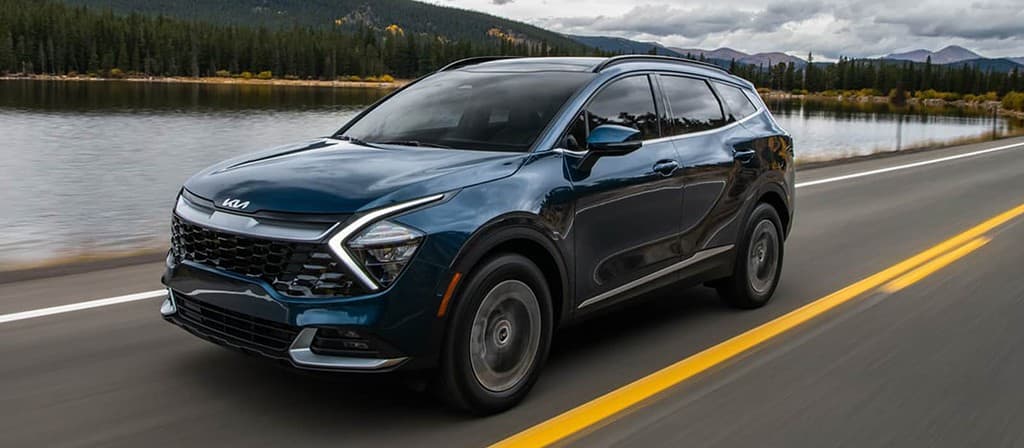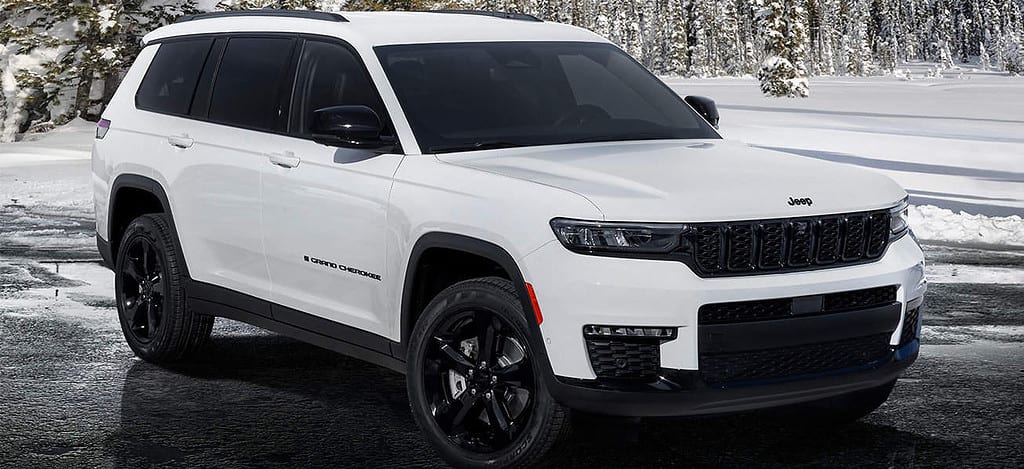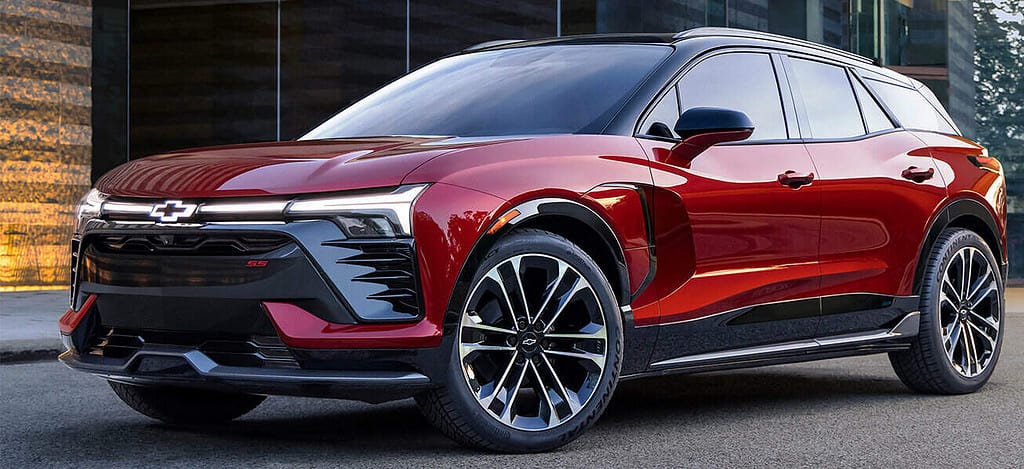Why Do People Keep Buying Crossovers and SUVs?
The automotive market has been on a roll recently. Blame it on the COVID-19 pandemic, supply chain disruption, chip shortage, or whatever reason you can come up with, but it has affected the market more than anyone could have imagined. There’s a severe shortage of new vehicles in showrooms and a long waiting list for some models, so prices and demand for what is available are strong. What isn’t changing, however, is what people want to buy, but why do people keep buying crossover and SUVs to the almost total exclusion of cars?

You might have heard by now that crossovers and SUVs have surpassed the sales of other body types of vehicles, and if not, you have to be living under a rock. Sales figures for the first quarter of 2022 show that SUVs and pickups set a new record for market share; a combined share of 72.9%, of which SUVs contributed a major 53.5% and trucks a 19.4% share, respectively, according to information provided by JATO Dynamics.
What is the difference between crossovers and SUVs?
The crossover, as the name implies, is essentially a hybrid of normal low-riding passenger cars and SUVs. It takes the unibody construction from the former and combines it with the lifted ride height and seating position of the latter while ditching its body-on-frame structure.
If you’re still confused, look out for vehicles that neither look like normal passenger cars nor utility vehicles. There is nothing more special about them other than that these days, although automakers have been experimenting with different design languages.
The term SUV is, in many cases, used as an umbrella term for both crossovers and conventional SUVs because of the similarity between them. To the uninitiated, it’s hard to grasp the difference, but crossovers drive and handle in a much more car-like manner than their truck-based SUV counterparts.
Why are people obsessed with crossovers and SUVs?
Americans are purchasing a much larger number of trucks and SUVs than any other country. There are a number of reasons that explain this trend, and I will try to explore as many of them as possible. But before that, if you plan on buying a new car, or truck for that matter, I would suggest you be realistic and make a reasonable decision, keeping in mind your needs and the future.
There are still some really good sedans around, and it would be a shame if cars disappeared from showrooms completely.
Increased ride height and seating position: I don’t know if this is a pro or con. I’ll leave it up to you to decide. But generally, when asked, this is the most frequent answer to why people like crossovers and SUVs. The ride height and seating position seem comfortable to most buyers. For the elderly, no need for bending, plus the entrance and exit are easy.
Sense of Security and Safety: One reason might be that the higher riding position gives people a sense of security and a greater field of view. They find this seating position commanding when driving, and Land Rover actually uses the term “Command Driving Position” as the starting point for designing all its vehicles. Why do I mention it as “sense”? Because it just makes sense. Crossovers are, in fact, not superior to other passenger cars in safety ratings. But just you try telling someone shopping for a new midsize SUV that it isn’t as safe as some compact sedans and hatches.
Seating and cargo space: Crossovers give more space by expanding vertically instead of horizontally. The higher waistline and roof make them spacious and can haul way more cargo. The seating position is such that legroom is often generous, although try telling that to someone sitting right in the back of most midsize three-row SUVs!
Practicality: This vertical expansion allows them to have a shorter footprint, making them more practical while maneuvering in tight spaces. On the other hand, how much of that extra headroom is really of much use unless you’re a center in the NBA?
Slightly off-road capable: Some of the crossovers don’t mind being taken slightly off-road. Their increased ride height can handle it when the pavement gives way to a rough trail when they are equipped with all-wheel drive. However, don’t expect them to crawl over rocks or ford streams. That level of capability is more than most people need, even if they think otherwise.
Most crossovers and SUVs never leave the pavement, which is why there are more and more available in two-wheel-drive formats.
Fashion. It seems like people do act like sheep and follow the flock. Or should that be they behave like lemmings and follow each other over a cliff? Combined with marketing campaigns and extensive advertising, the crossover SUV trend has set in and many shoppers won’t consider anything else. Well, except a truck, of course. Everybody loves a pickup truck.

Is a crossover better than a sedan or hatchback?
They’re not exactly driver’s cars, but does that matter when most roads are so congested these days? No matter how much they make an SUV better for on-road driving, it is still an SUV. They just don’t have the dynamics of a normal road car. They’re inherently incapable of being pushed to their limits on decent roads, so for someone seeking a pure driver’s car, a low-riding sedan, hatch, or coupe is always going to be more enjoyable.
Crossovers and SUVs are usually less efficient than cars. When compared closely, crossovers are less efficient than the same-sized passenger cars. Why you might ask? Well, they have increased weight, and they are higher above the ground and less aerodynamic. On top of all that, their height and raised center of gravity also make them more prone to rollovers in accidents.
It’s impossible to say if crossovers and SUVs are better than a sedan or hatchback because it depends on what you want to use them for. For the majority of daily driving duties, a sedan or hatch is every bit as good as a crossover or SUV, and sometimes better. However, if you want something bigger, especially something that can go off-road, then the SUV or crossover is the way to go.
Are crossovers and SUVs worth it?
A substantial number of the crossovers and SUVs you see on the road have never been taken anywhere other than the road. In other words, they haven’t been utilized for the purpose they have been made for. In my book, that makes them an expensive toy, which is fine if you can afford to spend good money on features you never use.
However, some applications justify buying an SUV. For example, if you live in a rural area or in a place that receives rainfall and snowfall, you need a vehicle with all-wheel drive and off-road capability. Or let’s suppose you regularly haul and tow stuff from place to place and you are short on space and towing capacity in a regular car.
I hope it’s not true, but let’s suppose for a moment you’re impressed by the presentation of SUVs in popular media as a sign of an authoritative figure. Maybe you think driving a big SUV makes you look important? It doesn’t.
If you have a black Suburban you could get mistaken for a Fed, and a black Escalade will probably encourage plenty of people to imagine you’re the purveyor of illicit substances emanating from South America. If that’s the impression you want to give then great, but you have been warned.
All these cases rationalize why you might think you need an SUV, but where do crossovers fail? This is where the argument starts: “Are crossovers pointless?” Some of you might have asked this question at some point somewhere.
They’re not as capable as a truck-based SUV and they’re far more expensive than an equivalent sedan. If you need more than five seats then they’re something of a no-brainer, however, especially if you can’t stomach the idea of being seen driving a minivan.
Are crossovers pointless?
Well, at some point, I also asked myself this question. The thing is, when you think hard enough about this, you will realize that the concept of crossovers is all smoke and mirrors. The need for a proper SUV is justifiable, but for a crossover, not so much. If you need a spacious interior, there are mid-size and full-size sedans for that purpose.
If you need to haul stuff, a minivan or a station wagon is a versatile alternative. You drive through metropolitan regions or routinely cruise through tight streets, normal passenger cars are great at it. You prioritize fuel efficiency over a proper SUV. Guess what, normal cars have got you covered.
The thing is, you either need an SUV or you don’t. But you surely don’t need a crossover; you probably just WANT one. They’re neither good at impersonating an SUV nor do they do justice to their normal passenger car roots.
I don’t want you to feel like I have a real hatred towards crossovers, this is just purely logical thinking. Okay! I might be a little sensitive about all the cars that were sacrificed in the name of crossovers. But I am not exactly wrong.

Crossovers take everything great about driving a car and ruin it with a substantial body roll, decreased maneuverability, and non-communicative steering. The driving pleasure is gone most of the time. No matter how deftly tuned and advanced they are, somewhat weighty, high-riding vehicles are intrinsically compromised when compared with their passenger counterparts.
On the other hand, I have to admit that I currently lease a compact crossover SUV which could lead you to think I’m being a little hypocritical here. However, the truth is I bought it because it was one of the few brand-new vehicles in my budget that was available at the time due to the microchip shortage.
Are sedans dying?
The analysis of sales numbers suggests that the sales of sedans are hardest hit by crossovers and SUVs. Hatchbacks, not so much, but still, sales have dropped. The success of crossovers and SUVs is coming at the expense of the discontinuation of some of our beloved sedans.
Some manufacturers have dropped all sedans from a certain market while some are preparing to do the same. Others have reduced their offerings and few are left with a decent family of sedans in their lineups. The automakers that do still produce plenty of sedans are mostly luxury brands, like BMW, Mercedes, Audi, and Lexus.
Which manufacturer has discontinued sedans and hatchbacks?
Ford has discontinued every single sedan and hatchback in its American lineup. Chevrolet has dropped the Impala and SS from its lineups since 2020 and 2017, respectively, but it still offers a hatchback Spark and a sedan Malibu. Mitsubishi has not produced its enthusiasts’ famous and much-loved Lancer since 2017.
Following the 2020 withdrawal of the Cascada and LaCrosse, Buick ended sales of cars in North America after 113 years in favor of a lineup exclusively consisting of sport utility vehicles (SUVs).
Why are performance car makers making crossovers and SUVs?
No one would have thought that bespoke and performance car makers would ever make an SUV. But here we are today, where Lamborghini’s Urus is its bestselling model and Lamborghiniisn’t alone. Aston Martin recently joined the club. Porsche and Bentley are old players. And if that wasn’t enough, Ferrari and Lotus will be joining the band in the near future.
Actually, we cannot blame them for this. As long as SUVs are selling, automakers will keep making them. After all, they need to maintain working capital by selling new vehicles. The main expectation left in the luxury performance car genre is McLaren, but who knows how long it will be before even they throw in the towel and produce an SUV.
But there is a bright side to all of this.
How? When enough people started complaining about this, some automakers took notice. What they did was to start making enthusiast cars more enthusiastic. For example, take Toyota. They had a pretty satisfying sports car in their lineup. The Toyota GR86. But that was not enough. All this SUV craze has somehow enabled or forced the automakers to focus more on the performance car side, even if regular sedans are going the same way as the dinosaurs.
First, Toyota brought back the legendary Supra, and most recently, a rally homologation special, the GR Corolla. This received acclaim from every single petrol head, including me. The Honda Civic Type-R is still sticking around with an all-new model about to be launched, and so are the Ford Mustang (for now) and Chevrolet Corvette.
The new Z06 is a game-changer, and if you’d choose an SUV over a Z06 when two seats are enough for you then you’re obviously not much of a driving enthusiast. Although they are few in number, the performance cars we now have are the best we’ve had in a while.
The future?
Mercedes is expected to cut its A-Class models from the lineup before too much longer, even though they haven’t been available in America for long. This will make the GLA the entry-level model in the Mercedes lineup. The Chevrolet Spark is breathing its last this year. Toyota will kill its flagship Avalon, and Volkswagen will finally kill off the enduring Passat soon. The Mazda 6, Kia Cadenza, and Kia K900 are also scheduled for the chopping block this year.
The worst thing as far as I’m concerned is news of the discontinuation of all Dodge Hellcat models after 2023. If that’s not a reason to hate all things crossover then I don’t know what is.
SUVs and the ongoing electrification of their lineups are the top priorities of automakers right now. To keep up with such a dynamic market, it’s understandable that automakers decided to adapt to what buyers want. Crossovers and SUVs are what the automotive market wants right now, apparently, and if this is the fate of sedans, then let’s remember that they were fun while they lasted.
